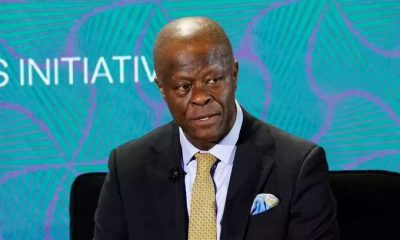Business
Nigeria missing as IMF names Africa’s fastest-frowing economies

... Benin, Côte d’Ivoire, Ethiopia, Rwanda, Uganda lead growth; Fund urges Nigeria to deepen reforms
Nigeria has been left out of the International Monetary Fund’s (IMF) latest ranking of Africa’s fastest-growing economies, with Benin Republic, Côte d’Ivoire, Ethiopia, Rwanda, and Uganda emerging as the continent’s top performers.
The revelation came on Thursday during the launch of the IMF’s Regional Economic Outlook for Sub-Saharan Africa, presented by the Fund’s Director of African Department, Abebe Selassie, in Washington DC.
Selassie said the five countries were now among the world’s fastest-growing economies, driven by sustained fiscal reforms, better macroeconomic management, and rising investments in manufacturing and infrastructure.
“Several countries in the region, including Benin, Côte d’Ivoire, Ethiopia, Rwanda, and Uganda, are among the fastest-growing economies in the world,” Selassie said. “Their success reflects ongoing progress in macroeconomic stabilisation and reform efforts.”
He noted that Sub-Saharan Africa’s economic growth is projected to stabilise at 4.1 per cent in 2025, with a modest pick-up in 2026, despite weaker global demand, tighter financial markets, and volatile commodity prices.
Nigeria’s exclusion from the list comes even as the IMF recently raised its growth forecast for the country to 3.9 per cent in 2025, up from 3.4 per cent in July, citing higher oil production, improved investor confidence, and better fiscal coordination.
The National Bureau of Statistics (NBS) also reported that Nigeria’s Gross Domestic Product (GDP) grew by 4.23 per cent in Q2 2025, up from 3.48 per cent in the same period last year, reflecting modest recovery in oil and non-oil sectors.
Despite these gains, the IMF said Nigeria’s growth remains below potential, urging deeper structural reforms to boost productivity, expand non-oil revenue, improve electricity supply, and curb inflation.
Selassie also warned of rising financial vulnerabilities across the region, as governments increasingly rely on domestic banks for borrowing due to limited access to external financing.
“As access to external financing tightens, many governments have turned to domestic banks to sustain public spending,” he said. “This short-term relief deepens the sovereign-bank nexus and poses stability risks.”
The IMF called for stronger domestic revenue mobilisation and debt management, recommending tax system modernisation, digitalisation, better compliance, and transparent fiscal governance to build public trust and lower borrowing costs.
Turning to Nigeria, Selassie acknowledged that the country’s monetary tightening and exchange rate unification have begun to yield results, with inflation easing from over 30 per cent last year to around 23 per cent.
“The decline in inflation is consistent with tighter monetary policy and exchange rate adjustments,” he said. “But inflation remains sticky at higher price levels, and policy discipline must continue.”
The IMF’s Fiscal Affairs Division Chief, Davide Furceri, described Nigeria’s fiscal stance as “neutral,” commending the government’s efforts to streamline tax codes, reduce business burdens, and cut wasteful spending.
“Nigeria has done quite a lot in recent years,” Furceri said. “Many of the reforms have gone in the right direction and are consistent with reducing inflation and supporting growth.”
Similarly, Tobias Adrian, Director of Monetary and Capital Markets, praised Nigeria’s recent exchange rate reforms and tighter monetary stance, saying they have helped strengthen policy credibility and external buffers.
“A depreciating exchange rate is not necessarily bad, it helps restore balance,” Adrian said. “Nigeria has made progress in strengthening its macroeconomic framework.”
The IMF, however, cautioned that external headwinds, including slowing global growth, volatile oil prices, and expensive capital markets, remain significant risks for African economies.
It advised countries like Nigeria to consolidate fiscal discipline, improve debt transparency, and focus on industrial diversification to unlock sustainable, inclusive growth.
“While the region has shown remarkable resilience, this recovery remains fragile,” Selassie said. “The task ahead is to strengthen reforms that will turn resilience into sustained prosperity.”






